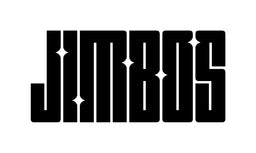The Best Polishing Pads for Boats: Wool vs. Foam Explained
Choosing the right polishing pad can make or break your gel coat restoration. Wool, foam, or microfiber — each pad type behaves differently depending on your goal. In this guide, you’ll learn which polishing pad is best for boats, how to use them, and what to pair them with for professional, mirror-like results.
Estimated Reading Time: ~9 minutes
Why Pad Choice Matters for Gel Coat
Boat gel coat is thicker and harder than automotive paint, which means you need more aggressive cutting power to remove oxidation and restore gloss. The pad you choose controls the level of correction, finish quality, and working speed — it’s just as important as the polish itself.
- → Wool pads cut faster for heavy oxidation.
- → Foam pads finish smoother for a glossy, swirl-free look.
- → Microfiber pads bridge the gap between both.
Wool Pads: Maximum Cutting Power
Wool pads are the go-to for heavily oxidized gel coat. They have natural fibers that provide strong mechanical cut and faster heat dissipation — ideal for large surfaces like hulls and pontoons.
Pros:
- → Removes deep oxidation quickly
- → Ideal for rotary polishers
- → Excellent heat control during correction
- → Perfect for use with Picture Perfect Polish for initial restoration
Cons:
- → Can leave light swirls or holograms if not followed by foam
- → Requires more frequent cleaning to maintain performance
Foam Pads: Perfect Finishing and Protection
Foam pads are the most versatile option. They provide gentle polishing and finishing while evenly spreading product. After using wool to remove heavy defects, follow up with foam for maximum clarity and depth.
Pros:
- → Delivers a swirl-free, high-gloss finish
- → Great for applying Picture Perfect Polish or Tough As Shell Ceramic Spray
- → Safer for softer or colored gel coat surfaces
- → Available in multiple densities for different needs
Cons:
- → Slower cutting speed on heavy oxidation
- → Requires regular cleaning to prevent clogging
Microfiber Pads: The Hybrid Option
Microfiber pads are a balance between wool and foam. They offer more cutting power than foam but finish better than wool. These pads are perfect for one-step correction using Picture Perfect Polish.
Best For:
- → One-step polish and finish
- → Removing moderate oxidation
- → Dual-action polishers or forced rotation machines
Pad Comparison for Boat Detailing
| Pad Type | Cutting Power | Finish Quality | Best Use |
|---|---|---|---|
| Wool Pad | High | Medium | Heavy oxidation removal |
| Foam Pad | Medium | High (mirror finish) | Final polishing and sealing |
| Microfiber Pad | High-Medium | High | One-step correction |
Restore and Protect in One Step
Pair your favorite polishing pad with Picture Perfect Polish — designed to cut, finish, and leave a deep marine gloss on gel coat.
Shop Picture Perfect Polish Buy on AmazonPad and Polish Combinations for the Perfect Finish
- → Heavy Oxidation: Wool pad + Picture Perfect Polish
- → Moderate Oxidation: Microfiber pad + Picture Perfect Polish
- → Final Finishing: Foam pad + Picture Perfect Polish or Tough As Shell Ceramic Spray
These combinations let you tailor your correction process to your boat’s exact condition — maximizing gloss while minimizing effort.
Get the Ultimate Marine Finish
Picture Perfect Polish delivers professional results with any pad — from heavy wool correction to foam finishing — and pairs perfectly with Tough As Shell Ceramic Spray for lasting protection.
Shop Picture Perfect Polish Shop Tough As Shell Buy on AmazonRelated Reading
- Restoring Faded Gel Coat: Professional Tips for a Mirror Finish
- The Complete Guide to Boat Hull Oxidation Removal
- How to Prep Your Boat for Ceramic Coating
- How to Remove Stains and Waterlines from Boat Hulls
- How to Foam Wash Your Boat Without Damaging the Gel Coat
FAQs
What’s the best pad for restoring faded gel coat?
Start with a wool pad for heavy oxidation, then finish with a foam pad for a glossy, swirl-free finish. Pair both with Picture Perfect Polish.
Can I use the same pad for compounding and polishing?
You can, but for best results, switch pads as you move from cutting to finishing. Wool for compounding, foam for final polish.
Do microfiber pads work on gel coat?
Yes — microfiber pads are great for one-step polishing with Picture Perfect Polish. They balance cutting power and smooth finish quality.
What’s the difference between wool and foam pads?
Wool pads cut faster but can leave minor swirls. Foam pads refine the finish for ultimate gloss. Many pros use both in a two-step process.
How do I clean polishing pads?
Rinse pads in warm water with mild soap, squeeze out excess polish, and let them air dry face down. Avoid soaking or spinning too fast.



